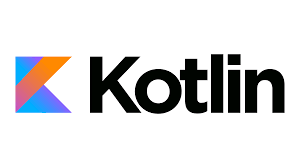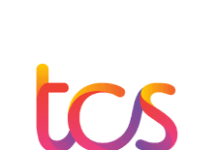Kotlin is a cross-platform, statically typed, general-purpose programming language with type inference. Kotlin is designed to interoperate fully with Java, and the JVM version of Kotlin’s standard library depends on the Java Class Library, but type inference allows its syntax to be more concise.
It mainly targets the JVM, but also compiles to JavaScript (e.g., for frontend web applications using React) or native code (via LLVM); e.g., for native iOS apps sharing business logic with Android apps. Language development costs are borne by JetBrains, while this Foundation protects the trademark.
On 7 May 2019, Google announced that this programming language is now its preferred language for Android app developers. Since the release of Android Studio 3.0 in October 2017, It has been included as an alternative to the standard Java compiler. The Android compiler produces Java 8 byte-code by default (which runs in any later JVM), but lets the programmer choose to target Java 9 up to 16, for optimization, or allows for more features; has bidirectional record class interoperability support for JVM, introduced in Java 16, considered stable as of Kotlin 1.5.
It support for compilation directly to JavaScript (i.e., the classic back-end) is considered stable since it 1.3 by its developers, while the new Kotlin/JS(IR) is in beta as of version 1.5.30. The new optimized implementations of Kotlin/JVM(IR) and Kotlin/JS (IR-based) were introduced in version 1.4. Kotlin/JVM(IR) is considered stable as of the version 1.5 release. Kotlin/Native (for e.g. Apple silicon support) has considered beta since version 1.3.
Why do we need Kotlin?
The most strongly supported JVM language in the Android ecosystem—aside from Java—is Kotlin, an open-source, statically typed language developed by JetBrains. One other huge benefit is that most of its language design decisions focused on maintaining backward compatibility with many Java and Android projects.
Why we use Kotlin instead of Java?
Described as a general-purpose language, It introduces functional features to support Java interoperability. This also introduces improved syntax, as well as concise expressions and abstractions. Using this with Java reduces excessive boilerplate code, which is a huge win for Android developers.
This is a general purpose, free, open source, statically type “pragmatic” programming language initially design for the JVM (Java Virtual Machine) and Android that combines object-oriented and functional programming features. It is focus on interoperability, safety, clarity, and tooling support.
What are the advantages of Kotlin over Java in Android programming?
- It’s Completely Interoperable With Java.
- It’s (way) More Concise Than Java.
- Safer Code.
- It Comes With a Smarter and Safer Compiler.
- It’s Easier to Maintain.
- It’s Create to Boost Your Productivity.
- It “Spoils” You with Better Support for Functional Programming.
What are the disadvantages of Kotlin over Java?
- Fluctuation in Compilation.
- Less Talent for Hire.
- Limited Learning Resources.
- It is Still Not Java.
Is Kotlin performance better than Java?
Java is a faster programming language than Kot.. As one test revealed that Java has ~13% faster compilation speeds (with Gradle) than Kot. (14.2 seconds vs 16.6 seconds) on average. However, the difference in speed is only for full builds.
Why is Kotlin good for Android?
It is an Android-compatible language that is concise, expressive, and design to type- and null-safe. It works with the Java language seamlessly, so it makes it easy for developers who love the Java language to keep using it but also incrementally add code and leverage libraries.
Is Kotlin use for Web development?
This can be use for any type of development: from server-side and client-side web to Android and iOS. The language runs on JVM, which enables code sharing between different platforms. Kotlin/Native is also ready for production development, which is great news.
Is Kotlin good for backend?
Yes, it is good for Back-end as well as Front-End. It is a statically type programming language that you can use in front-end, back-end, and Android development.
Can we use Kotlin for front end?
We can use both reactive and imperative programming models to build your frontend, use connectors for Ktor, Spring Boot, and other frameworks to integrate it with your server-side applications, and share code using Multiplatform.
How do you use the operator in Kotlin?
- fun main(args: Array<String>){
- var a=10.
- b=5.
- var c=15.
- flag = false.
- var result: Boolean.
- result = (a>b) && (a>c)
- println(“(a>b) && (a>c) :”+ result)
Does Kotlin have a future?
It has been around for about five years, but it finally reached the production-ready version 1.0 this year. Another major reason that has a bright future—you can easily build Android apps with it.





